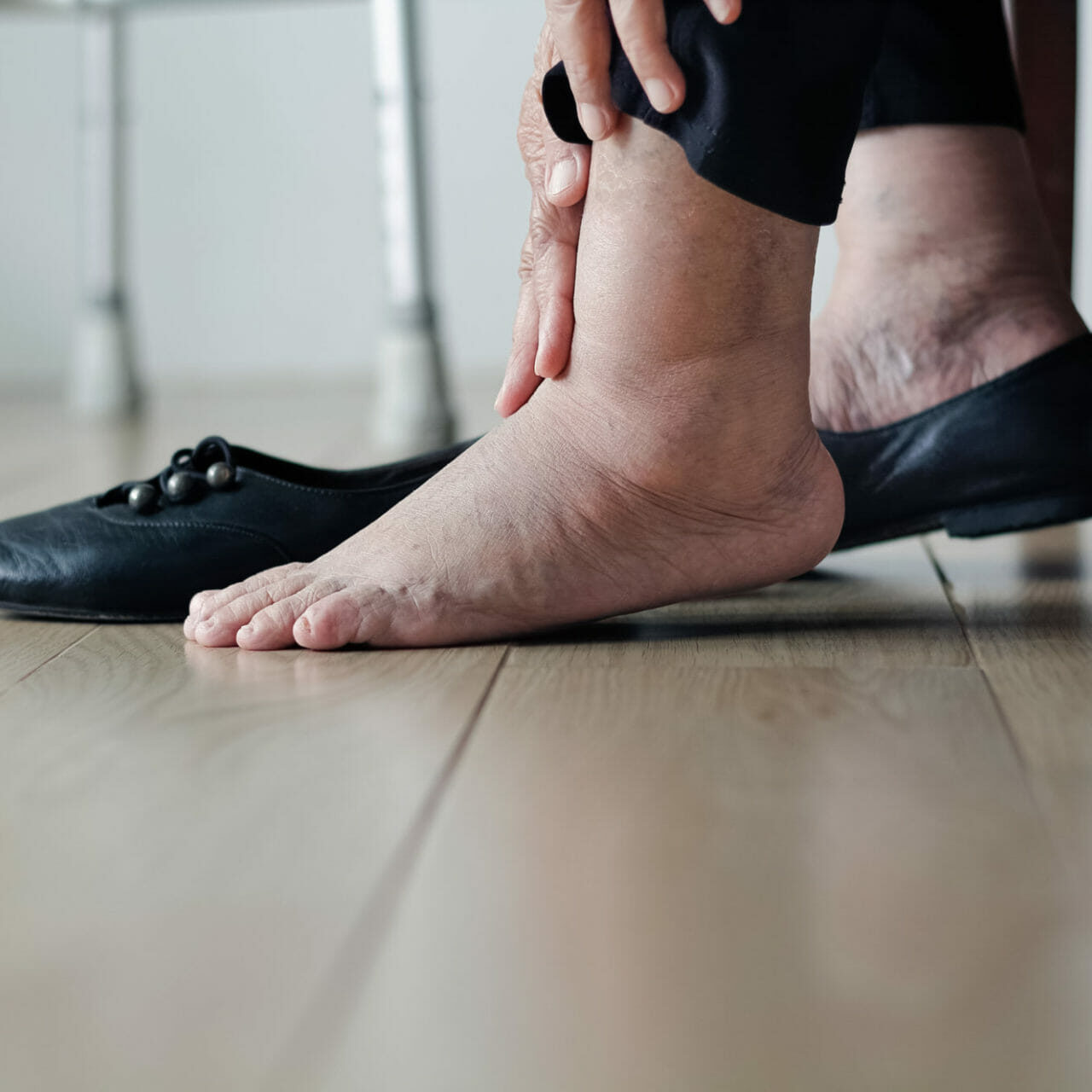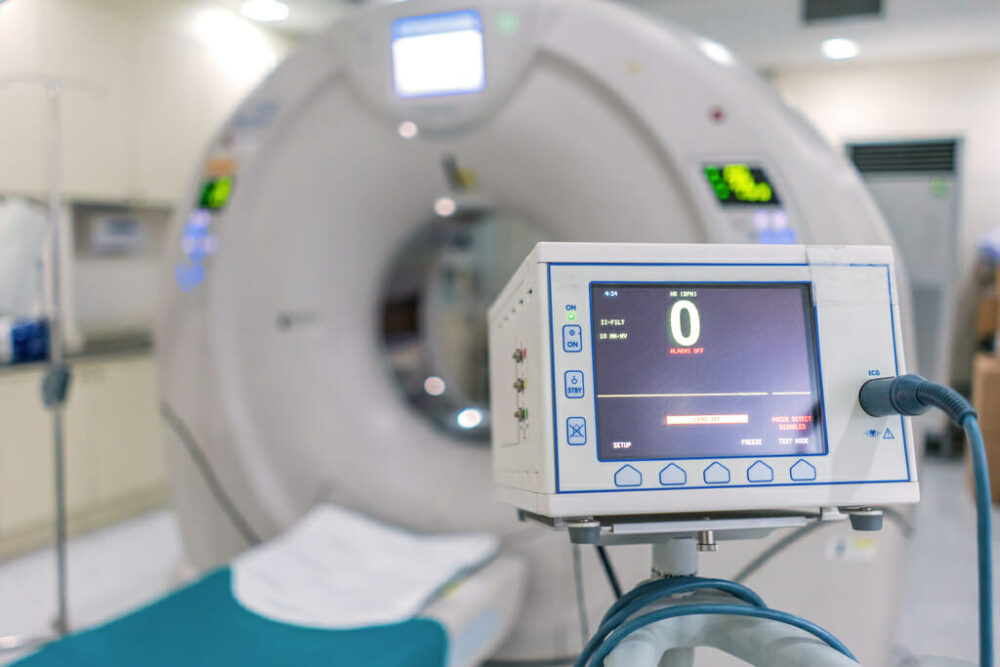SWOLLEN FEET TREATMENT IN LONDON
Swollen Feet Treatment
The treatment for swollen feet will typically depend on the cause. However, various treatments, such as lifestyle changes, weight loss, and wearing more suitable footwear, can help. If your swollen feet are a symptom of heart failure, a list of medical treatments can help minimise the severity of symptoms:
- Medication
- Implantable Devices
- Rest
- Surgery
- Heart transplant
- Fluids
What Is Oedema?
If you are experiencing swollen feet, you may be looking for more information on how to treat them. Swollen feet occur due to a build-up of fluid in the area and are medically known as Oedema. Oedema can affect your feet, ankles, and legs. You may notice the skin puffs up in these areas, and your skin can slightly alter in colour. In some cases, swollen feet is the first sign of heart failure.
Oedema Symptoms
Like most medical conditions, there are some common signs and symptoms of Oedema. If you experience any of the following symptoms – and they continue to persist, consult with your doctor:
- Swollen/puffy feet, ankles, or legs
- Changes in skin colour
- Stretched or shiny skin
- Discomfort and stiffness
- Dents when you press on your skin
They will be able to offer your guidance on how to help the swelling go down. If the swelling also starts suddenly and there is no explanation for this, don’t delay making an urgent appointment.

Why Are My Feet Swollen?
The good news about swelling in the ankles, feet, or legs is that it often goes away on its own. You will find that Oedema is usually caused by something minor like sitting down or staying in the same position for too long. However, if the swelling persists, this could signify something more serious. You should seek assistance from a medical professional at your nearest convenience.
Although most cases of Oedema are not severe, it can derive from a multitude of factors and conditions, from pregnancy or injury to diabetes. It may surprise you that it can also be linked with heart failure. Take a look at the list of potential causes below:
- Certain medications, e.g. blood pressure medicines
- Sitting or standing in the same position for too long
- An injury
- Being overweight
- Being pregnant
- Eating too many foods with high salt content
- An insect bite
- Problems with the kidney, liver, or heart
Heart Failure And Swollen Feet
Swollen feet can be the first sign of heart failure, a result of heart weakness or abnormal flow of blood through the cardiac valves. Very often, it develops alongside breathlessness, but can also be the only sign present. The feet swell up because the heart cannot do its job, which is to pump blood through circulation. The gravity causes fluid to come out of the arteries and veins and into the tissues of the feet. Therefore, a good way of improving leg swelling is to keep the legs high when sitting on a chair. This will not cure the problem that caused the swelling in the first place but can improve the severity of it.
If you have heart failure, you may find that the swelling of your feet comes and goes. However, it will typically last for long periods of time. Heart failure commonly leads to swelling of the feet and can also spread elsewhere in the body.

Other Symptoms Of Heart Failure
Swollen feet do not necessarily signify that you have heart failure. Therefore, you must try not to worry. There is a list of other symptoms that are related to heart failure that you should be aware of:
- Sudden pain in the right upper stomach and underneath the ribs
- Regular heart palpitations
- Fatigue
- Shortness of breath
- Getting easily winded
- Finding strenuous activities like exercise difficult
If you suffer from any of the following symptoms, you must book an appointment with a cardiologist. A cardiologist assesses, diagnoses, and treats patients who experience health issues with their hearts. Cardiologists – like Dr Karagiannis – can help you identify problems like heart failure – and guide you through how to make the condition more manageable.
Worried about your heart?
DON’T suffer in silence, seek expert help without delay
When Should I Be Concerned About Swollen Feet?
You should only be concerned if your feet are swollen and there is no explanation. For example, if you have not experienced an injury, are not pregnant, or weren’t aware of any underlying conditions that might have caused swollen feet, this could signify that you are suffering from another health issue. You must book an appointment with a cardiologist at your nearest convenience. Swollen feet are also a cause for concern if you are experiencing other symptoms like shortness of breath and chest pain. Take a look at your feet, and if you are experiencing additional side effects and your skin looks stretched or breaks, seek medical attention as soon as possible.
Heart Failure Diagnosis
If you are concerned that your swollen feet are related to heart failure, you must see a cardiologist right away. They will perform a range of cardiac tests to try and rule out or diagnose heart failure:

Book A Consultation With Expert Cardiologist
If you have swollen feet and want to access expert help without delay, don’t hesitate to get in touch with the Expert Cardiologist today. You can book a private consultation in-person, over the phone, or via video call.
GET IN TOUCH
Request A Call Back
Please fill in the contact form and we will call you back at a time most convenient for you.



